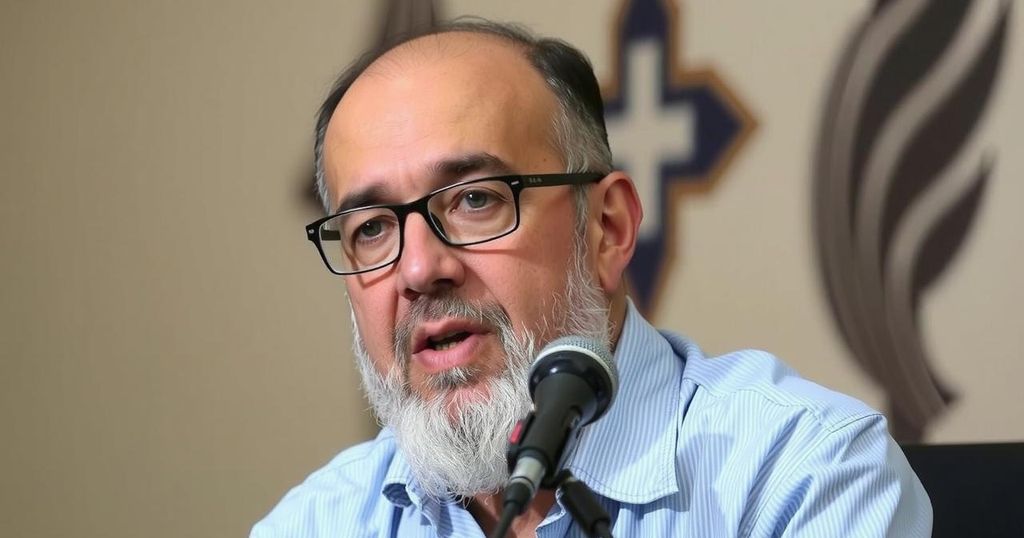Lebanon to Deport Egyptian Dissident Abdul Rahman Yusuf Amid Human Rights Concerns

Lebanon plans to deport Egyptian dissident Abdul Rahman Yusuf to the UAE after his detention for celebrating the fall of Syria’s Bashar al-Assad. Yusuf, a vocal critic of Egyptian President Abdel Fattah el-Sisi, faces possible persecution for his actions. Human rights organizations have urged the Lebanese government to avoid extradition on the grounds of potential human rights violations.
Lebanon is set to deport Abdul Rahman Yusuf, an Egyptian activist and dissident, to the United Arab Emirates (UAE). Yusuf was detained by Lebanese authorities upon his return from Syria, where he celebrated the anticipated fall of Syrian President Bashar al-Assad. Known for his opposition to Egyptian President Abdel Fattah el-Sisi, Yusuf had recorded messages in Syria expressing hope that the revolutions in Arab nations would succeed. His videos gained traction on social media, particularly among accounts linked to the Saudi and Egyptian governments, prompting calls for his deportation. The Lebanese cabinet has moved to expel him, although no timeline for the deportation has been disclosed. Human rights advocates, including Amnesty International, have urged Lebanon not to comply with extradition demands, emphasizing the risks Yusuf would face upon return, namely persecution for his outspoken views. They highlight that international law protects individuals from being forcibly returned to countries where they could be subject to human rights violations. This case poses a significant test for Lebanon’s commitment to upholding freedom of expression amid political pressures.
Abdul Rahman Yusuf is the son of the late cleric Yusuf al-Qaradawi, a prominent figure known for his activism and religious leadership. After returning from Syria, where he publicly celebrated the uprising against President Bashar al-Assad, his detention has sparked discussions about freedom of expression in the context of political dissent. Yusuf’s critical stance against Egyptian authorities, particularly concerning President Abdel Fattah el-Sisi, positions him within a broader narrative of opposition that resonates across the region. His arrest and potential deportation have attracted considerable attention, especially in light of the ongoing tensions between regional governments and dissidents.
In conclusion, Abdul Rahman Yusuf’s anticipated deportation from Lebanon to the UAE raises critical questions about the treatment of dissidents and the upholding of human rights in the region. The reactions from local governments and international organizations underscore the ongoing struggle for freedom of expression in Arab countries. The situation serves as a litmus test for Lebanon’s adherence to international human rights obligations versus political affiliations with other nations.
Original Source: www.middleeasteye.net








